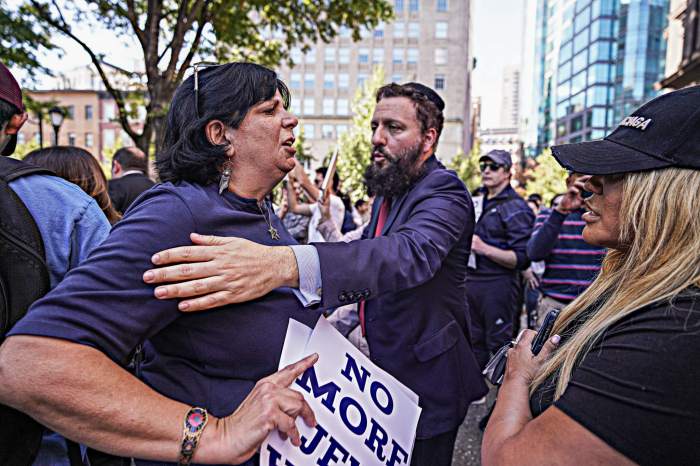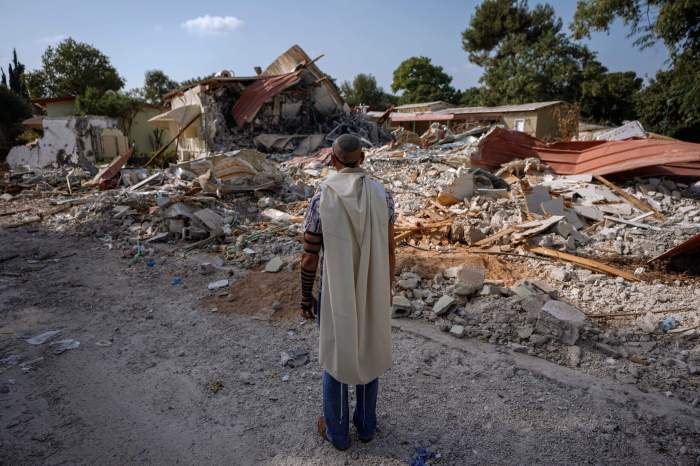
Mario Cuomo was movingly eulogized by his son Tuesday as an eloquent humanist, searching philosopher and tough advocate for the poor who relished nothing more than a good, tenacious fight.
The three-term governor of New York, who served from 1983 through 1994, was “the keynote speaker for our better angels,” Gov. Andrew Cuomo told mourners who had packed into Manhattan’s St. Ignatius Loyola Church for his father’s funeral.
It’s a fitting epitaph.
In a time of social confusion, public angst and financial distress, Mario Cuomo provided the state and the nation with a strong moral compass. His politics were smart, disciplined and compassionate.
He knew intuitively that he had to enlist the help of all New Yorkers to create a society where everyone could prosper — and where upward mobility was not limited to a few. He was always careful not to pit the interests of the poor against those of the middle class and the affluent.
Raised in South Jamaica, Cuomo was the son of Italian immigrants who ran a grocery store. The governor who would one day rouse a political convention and grow famous for his ability to convey the nuance and subtleties of complex issues didn’t learn English until starting public school.
As a child, he saw how public services — from good schools and decent housing to accessible and affordable health care — improved the lives of struggling families.
As a politician, Cuomo often seemed enigmatic.
You “campaign in poetry and govern in prose,” he once said. And he called his brand of politics “progressive pragmatism.”
His politics were essentially “a personal belief system,” Andrew Cuomo remarked on Tuesday.
On the prose side of the ledger, Mario Cuomo cut taxes, reduced the state workforce and sought to ratchet up the effectiveness of state government.
He balanced 12 state budgets and steered New York through two searing recessions. He fought successfully to keep Washington from killing the federal income tax deduction for state and local taxes.
But it’s the poetry — inspired by deeply felt ideas — that people best remember.
Cuomo stood firmly against the death penalty while many politicians around him shrilly pandered for more executions.
In a 1984 speech at Notre Dame University, he defended his decision not to fight against abortion rights. He said he was an “old-fashioned Catholic who sins, regrets, struggles, worries, gets confused, and most of the time feels better after confession.” But then he posed a rhetorical question: “I accept the church’s teaching on abortion. Must I insist you do?”
Two months earlier, at the Democratic National Convention in San Francisco, he electrified the hall — and millions of Americans watching on television — with his “Tale of Two Cities” speech: “We believe in only the government we need — but we insist on all the government we need.”
People also remember Cuomo’s inscrutability. In December 1991, with two planes waiting on the tarmac to take the governor and his entourage to New Hampshire for a last-minute filing in the next year’s presidential primary, Cuomo abruptly said he wouldn’t run. He said he needed to stay home and balance the budget.
Former President Bill Clinton later said Cuomo “was the first man in history” to turn down a Supreme Court appointment.
Does a legacy of poetry matter?
It matters plenty when mixed with practical wisdom and a keen understanding of New Yorkers and their communities.
In 1972, Mayor John Lindsay asked Cuomo, then practicing law, to mediate a bitter housing dispute in Forest Hills. The city wanted to build 840 units of low-income housing in three 24-story towers in the white, middle-class neighborhood.
The dispute was perceived as mainly racial, and Forest Hills residents angrily fought the plan. Cuomo was less certain — given a similar battle over low-income housing then raging in Baisley Park, a majority black middle-class area in South Jamaica.
“The point I drew … is that there is something beyond color here,” Cuomo said. “It’s economic class and distinction.” He hammered out a successful compromise for Forest Hills — three 12-story buildings with some units reserved for elderly residents. Settling the controversy was the start of his political career.
Later, as the Reagan revolution flourished, Cuomo rallied the spirits of beleaguered Democrats nationally by constantly reminding them of the timelessness and worth of their core values. He was a leading voice of inclusion in a nation fast choosing up sides. And he showed that it was not just possible — but politically advisable — to crusade for the have-nots in our society while also celebrating and abetting the strength of the middle class.
Other governors left more tangible records. Nelson Rockefeller created the state university system. Hugh Carey saved the City of New York from the brink of bankruptcy.
But Mario Cuomo’s simple yet powerful words ennobled all of us — by reminding us of who we are and where we should be going.

















